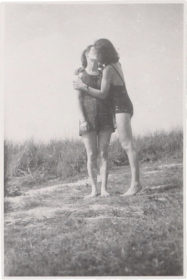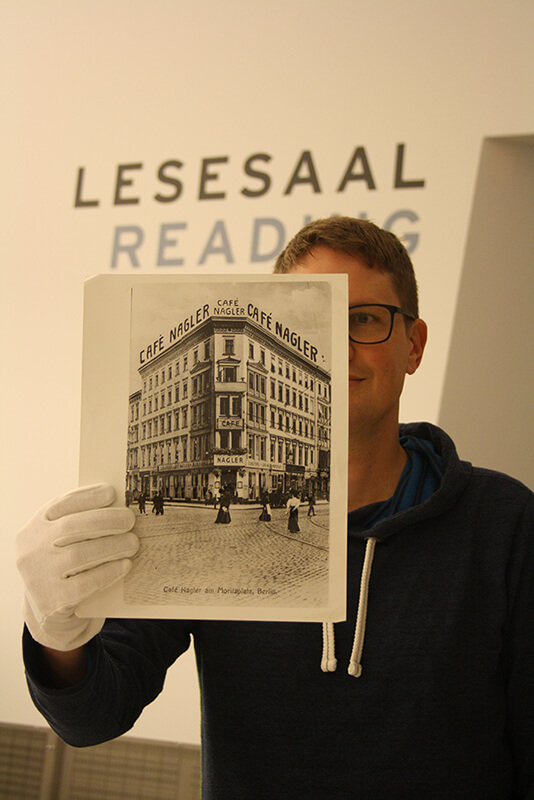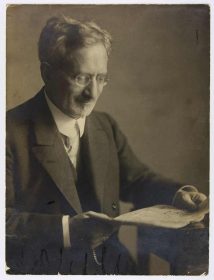Sexual Diversity in the Collection of the Jewish Museum
On July 28th, Christopher Street Day will take place for the 40th time in Berlin. Like every year, it will feature demonstrations for the rights of gay, lesbian, bisexual, and transgender people, this time under the slogan My body—my identity—my life! (Link to this year’s CSD political points (in German)) As ever, its attendees publicly display and celebrate sexual diversity.
The collection of the Jewish Museum includes items related to people who would possibly identify as LGBTI today, but unfortunately they aren’t very visible. “Homosexuality” is a keyword in the museum database, but it is hardly used.

Felice Schragenheim and Elisabeth Wust on an excursion to the Havel River, just hours before Schragenheim’s arrest, Berlin, 21 August 1944; Jewish Museum Berlin, gift from Elisabeth Wust
Most of the items associated with this keyword come from the collection on Felice Schragenheim (1922–1945) and Elisabeth (Lilly) Wust (1913–2006). Erica Fischer’s 1994 book Aimée & Jaguar made their story known, and the 1999 film of the same name made it famous.
Photos and documents record their romantic relationship, including numerous love letters, some of them sealed with Felice’s kiss.
The two “marriage contracts” that the women signed with each other in 1943 are highly unusual. The 21-year-old Felice composed hers in the form of a decalogue with ten promises. The first line reads “I will always love you.” → continue reading
On the trail of a coffee shop
It was a very special moment for me when I got to unpack recently a new collection for the Archive. A small package from Tel Aviv lay in front of me. The sender was Mor Kaplansky, an Israeli film-maker, with whom I had been corresponding since spring of this year.

Unpacking the collection of the Family Nagler; Jewish Museum Berlin; photo: Ulrike Neuwirth
It had all begun in March, at the finissage of Nosh, the Jewish Food Week. In a small café in Kreuzberg, the documentary film Café Nagler had just been shown. The film is about a coffee shop of that name, which had once stood on the Moritzplatz. While in Berlin today, there is no evidence that the café ever existed at the site, descendants of the Naglers in Israel have kept its memory alive right through the present day. The film moved me greatly. I was excited to see on the screen that Naomi, grandmother of the film-maker, had preserved certain treasures such as a coffee service with the emblem of the café and a set of silverware bearing the initials “N”. I also noticed various photographs and documents.
→ continue reading
The 1930 German Federal Election

Heinz Arzt reading the newspaper, 1920; Jewish Museum Berlin, gift of Hilde Pearton, née Bialostotzky
Recently I was leafing through the inventory listing of a family collection that has been in our archives for many years. I wanted to rework the index in order to bring it up to our current standards. The collection included documents, photographs, and objects from the Arzt and Bialostotzky families. In the twenty-three page inventory, a letter was listed for the Berlin liqueur manufacturer Heinz Arzt (1866–1931) in the category “correspondence,” but neither a sender nor recipient was listed, to say nothing of its contents. The extremely brief description went: “Letter: hand-written, 14 Sept. 1930.”
So I went into the archives and pulled the document numbered 2001/219/28 from box 451 to complete the listing. Suddenly, I was holding a fascinating piece of history in my hands: the so-called letter turned out to be a brief report on the Reichstag election eighty-seven years ago. → continue reading


